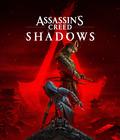
Genre: Turn-Based Strategy
Publisher: Nintendo
Developer: Intelligent Systems
Release Date: August 22, 2005
Buy 'ADVANCE WARS: Dual Strike': NDS
 Sugarcoated Strategy
Sugarcoated Strategy
For gamers of a certain breed, "turn-based" is synonymous with "no visceral thrills." No matter how rich the specific genre possibilities may be — epic role-playing battles, grids of terrain expertly designed for strategic maneuvering — the simple act of taking turns reduces the action to a rigid playground slap fight.
Advance Wars: Dual Strike is the sort of turn-based strategy game that has a shot at overcoming that reaction. After two acclaimed Advance Wars campaigns on the Game Boy Advance, Dual Strike rolls onto the Nintendo DS with a huge cast of goofy, engaging characters and addictive gameplay that ramps up smoothly for the uninitiated. It sports such a polish that the turn-based goes down easy, and without offloading IQ points in the process.
The Rainbow Coalition
The armies of Green Earth, Blue Moon, Orange Star and Yellow Comet have united under the banner of the Allied Nations to repel advancing Black Hole forces, now on the move in Omega Land. Commander Rachel and the others haven't yet figured out what they're after, so it's your job to build and mobilize land, air and sea units to put a stop to whatever Black Hole's got cooking.
In the Dual Strike campaign, you take on Black Hole using several Allied Nations commanding officers, each with unique personality quirks and battlefield talents. As you capture enemy bases and labs, you find intelligence on Black Hole weaponry that you can use to turn their own technology against them. More Allied Nations COs show up as you progress deeper into the campaign, and you have to weather a few prove-your-worthiness battles to get them to join your cause.
If you have the patience for it, reading the dialogue that opens and concludes each mission reveals all sorts of interpersonal dynamics and narrative context that lend some forward thrust to the action that otherwise proceeds as an episodic assemblage of missions. How, for instance, do Black Hole COs Kindle and Lash really feel about one another? It's all in the dialogue. Kindle: "There's no reason for you to know that, my dour little bird." Lash: "Kindle, you ketchup-tipped, overgrown hunk of asparagus." That's right, ketchup-tipped. Such moments await in every mission.
Then again, hardcore strategists shouldn't be faulted for demoting story to a consideration not worthy of a serious commanding officer. From that point of view, all the wacky names and cute designs are just so much packaging for CO skills and weaknesses that give units advantages and disadvantages, depending upon who's leading them in battle. Some CO skills grant to units an increase in the damage they deal enemy forces. Others earn more war funds for building units to match the enemy's production.
The COs also wield Powers, Super Powers and Tag Powers that become available when you fill up a meter. These have cute names like High Society and Haymaker. Again, you may find these narrative flourishes trivial if not outright annoying, but come on. Do you really not enjoy knowing that Sensei likes rainy days, but dislikes busy malls?
From Sami's ability to help her troops capture bases in one turn to Olaf's blizzard power that damages all enemy units on the battlefield, the powers themselves aren't so trivial. If you plan far enough ahead and can afford to wait until both COs' meters fill completely, you can activate the Tag Power. As they essentially give you two turns in a single round, Tag Powers are especially useful at key turning points, when you need just one more turn to produce the battle-deciding megatank, or when you're just a turn away from capturing the Black Hole HQ.
Dual Strike is so well-balanced that the CO power system also has the effect of building a dramatic ebb and flow within each battle. Many skirmishes appear straightforward at first, but turn desperate within just a few turns. If you survive long enough, your CO powers can turn the tide back to your favor. Of course, Black Hole can do the same.
And so it goes until you prove yourself the superior strategist. In the lengthier missions (and some can consume an hour or more, depending on whether you're strategizing for speed or technique), the shifting dynamics generate the excitement and relief you may need to persevere, especially later in the game.
While your COs are busy barking orders and conjuring snowstorms, mechs are climbing the mountains to see deeper into the fog of war, infantry's capturing factories, and submariners are patrolling the seas for enemy cruisers. War technology evolves slowly in the Advance Wars universe, so anyone who's played the GBA titles shouldn't expect too much novel machinery. Still, there's no shortage of tactical variety. Infantry, mechs and tanks handle the up-close dirty work. Artillery, rockets and expensive piperunner cannons back them up from a distance. A similar spread of direct and indirect combat units rules the skies and oceans, powerhouse stealth fighters and battleships among them.
R & R
The campaign unfolds over at least 20 hours of play, and that's just the campaign. You earn points in each mission and in the War Room, where you'll find a collection of maps for honing your skills and extending play time. In Versus mode, you can pass around your DS for multiplayer matches. Wireless matches are available if you have DS-owning pals who also have a Dual Strike game card.
Once you've trounced Black Hole and gotten bored with your friends, you still have Survival mode, wherein you challenge yourself to complete missions restricted by time, cash or number of turns. Then there's Combat mode, a real-time take on the Dual Strike action that maintains its appeal about as long as it takes to figure out how it works. With awkward controls and gameplay that feels too far removed from what Advance Warsis all about, however, Combat is probably the least engaging aspect of the whole package.
When the fighting gets you down and you need a little pick-me-up to keep on keeping on, you can use the points you've earned to buy new maps to use in non-campaign modes. New clothes are also available if you're not happy with a CO's style choices. When everyone's dressed to kill, you can turn your decorative skills away from the threads and apply them to designing your own maps with the map editor.
My Neotank vs. Your Panzer
If you like a healthy helping of verité with your strategy, Dual Strike's hand-drawn style might not satisfy your Military Channel aesthetic. For the more fantastically inclined, the game's visual world doesn't disappoint. Allied Nations COs are swaddled in rich colors, each with a distinctive uniform that reflects his or her personality or battlefield style. Black Hole COs, for the most part, wear the drab robes of evildoers.
Piperunners and other big guns fire with solid blast animations, and the projectiles strike enemy targets with equally satisfying explosions of the disappear-in-a-puff-of-smoke variety. The detail in unit design and animation is impressive; artillery units even adjust their angle of fire before launching rounds. You can switch off the animations to speed things along, but they're worth watching, at least for the first several battles before the slower pace risks bringing on a bout of battle fatigue.
The soundtrack swings from arcade-land war marches to ominous rocktronica and even a curiously country-tinged number. The tracks change from turn to turn, working against repetitive soundtrack burnout. Units move across the terrain with convincing chopper sounds and squeaky wheels on your neotanks. The sound design also provides a handy heads-up in fog-of-war missions, in which you can identify enemy units by the sounds the make as they move out through the fog.
Two Screens, Two Fronts
The DS' two screens make an excellent substitute — for 2005 consumer technology, anyway — for those holographic projections that every sci-fi movie general uses to manage the battlefields of the future. The touch screen handles most of the action. You can place units, check enemy movement ranges and gather terrain intel simply by poking grids with the stylus. Supplemental info appears on the top screen, keeping you on top of your forces' fuel and ammo status.
Some battles rage across two fronts, with Black Hole floating fortresses threatening the skies above the main action or additional units attacking another region on the ground. You can adjust your level of participation in these secondary fights by setting the friendly AI to assume aggressive or defensive postures. In some missions, you can take over entirely and fight two battles simultaneously.
These dual-screen battles can seem overwhelming at first, but they're consistently fair, and if you manage them carefully, they can yield significant advantages. When you defeat Black Hole in the secondary fight, for example, the CO you were using there joins the battle on the main front. That puts his or her special skills into play, and puts Tag Powers on the table.
CO of the Month
It's a delicate proposition to suggest that any one title can convert uninterested masses into genre zealots. It's a mighty claim, open to skepticism from gamers more into real-time action than turn-based plotting. On the other hand, touting the potential for widespread appeal also could raise eyebrows among the turn-based faithful, who might smell a dumbed-down, too-easy rat.
 Prevailing over both sets of concerns, Advance Wars: Dual Strike presents a slick invitation to turn-based neophytes without making the party boring for experienced strategists. With the wacky approach to art design, characters and storytelling, it's not exactly a case of everything for everyone, but that makes it no less compelling an introduction. For gamers who've already done a couple tours of duty on the GBA, Dual Strike is a worthy continuation of the Advance Wars saga.
Prevailing over both sets of concerns, Advance Wars: Dual Strike presents a slick invitation to turn-based neophytes without making the party boring for experienced strategists. With the wacky approach to art design, characters and storytelling, it's not exactly a case of everything for everyone, but that makes it no less compelling an introduction. For gamers who've already done a couple tours of duty on the GBA, Dual Strike is a worthy continuation of the Advance Wars saga.
Score: 9.2/10










